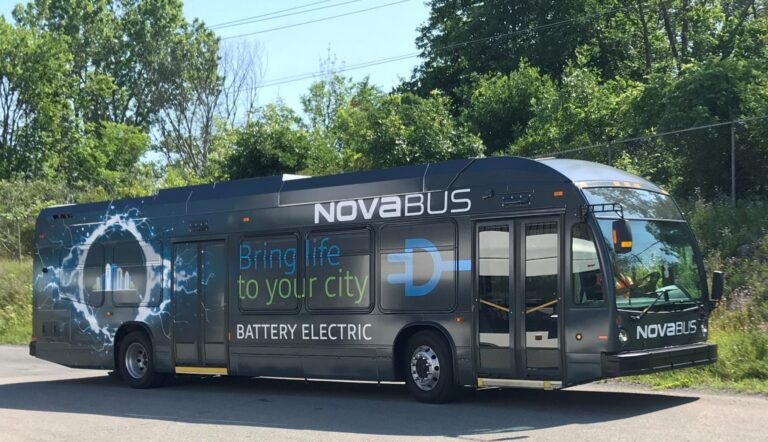The Canadian Urban Transit Research and Innovation Consortium (CUTRIC) has announced the operation of the first of four battery-electric buses and two high-powered, standardised overhead charging systems in Metro Vancouver, with six more on the way.
The entering into service of these vehicles forms the latest part of the Pan-Canadian Electric Bus Demonstration and Integration Trial.
Each of these buses is expected to reduce 100 tonnes of greenhouse gas emissions and save US$30,000 in fuel costs annually in comparison with a conventional diesel bus.
The pilot – spearheaded by Metro Vancouver’s transportation network TransLink – integrates Canadian transit vehicle manufacturers New Flyer Industries Canada and Nova Bus and charging station manufacturers ABB and Siemens to deploy battery-electric buses and electric charging stations that utilise an open protocol known as the OppCharge protocol – first developed by Siemens and Volvo Bus.
For the purposes of the trial, Nova Bus, part of the Volvo Group, is providing its LFSe electric buses and New Flyer is providing its Xcelsior Charge battery-electric buses.
New Flyer is also implementing an overhead on-route rapid charging system in co-operation with ABB and Siemens, who will supply interoperable opportunity charging systems with inverted pantograph technology for the battery-electric buses.
CUTRIC will collect data from all of the buses and chargers in operation to build a Canadian E-Bus Big Data Trust for Canadian municipalities in 2020.
Kevin Desmond, CEO, TransLink, said: “Through this partnership, the integration of standardised and interoperable battery-electric buses and high-powered overhead on-route charging systems will lead the charge towards the electrification of transit infrastructure globally.”





